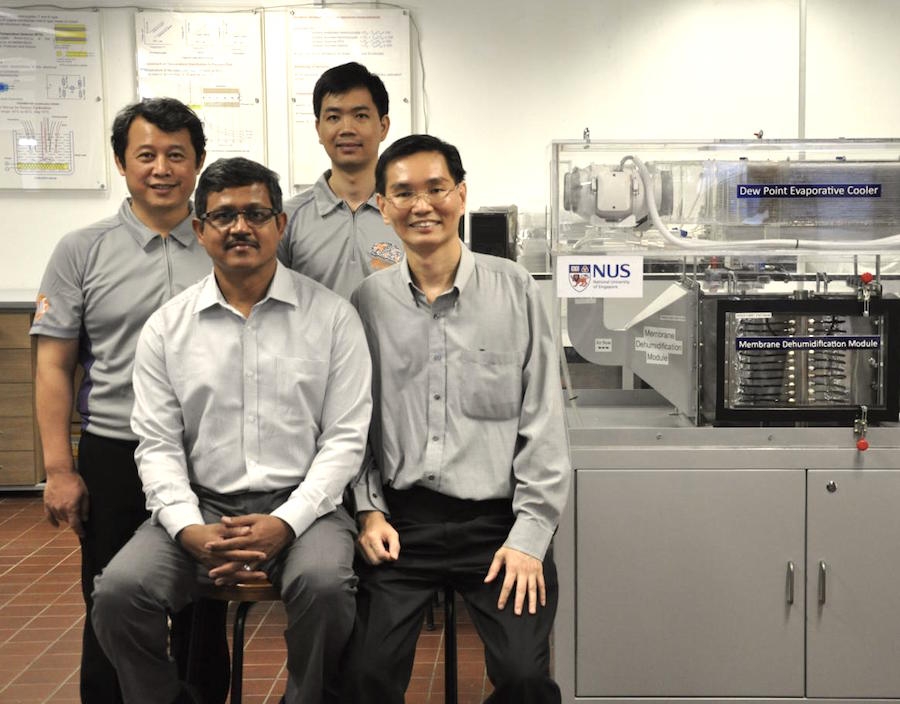
News
A water-based A/C system that also makes drinking water?
January 08, 2018 - An all-weather friendly cooling technology that works without mechanical compressors or chemical refrigerants... and generates drinking water?
January 8, 2018 By Anthony Capkun
 Researchers from the Department of Mechanical Engineering at National University of Singapore’s Faculty of Engineering developed a water-based
Researchers from the Department of Mechanical Engineering at National University of Singapore’s Faculty of Engineering developed a water-based A team of researchers from the National University of Singapore (NUS) has pioneered a new water-based air-conditioning system that cools air to as low as 18ºC without the use of compressors and chemical refrigerants.
Led by NUS’s Ernest Chua, the research team’s A/C system consumes about 40% less electricity than current compressor-based systems, and is suitable for both indoor and outdoor applications. The system is also portable, can be customized for all types of weather conditions and, at the end of the day, generates about 12-15 litres of potable water.
Current A/C systems require a large amount of energy to remove moisture and to cool the dehumidified air. By developing two systems to perform these two processes separately, the NUS Engineering team says can better control each process and, hence, achieve greater energy efficiency.
Their system first uses a membrane technology to remove moisture from humid outdoor air. The dehumidified air is then cooled via a dew-point cooling system that uses water as the cooling medium instead of chemical refrigerants. Unlike vapour compression A/Cs, the NUS system does not release hot air to the environment; instead, a cool air stream that is comparatively less humid than environmental humidity is discharged.
The research team is currently refining the design of the air-conditioning system to improve user-friendliness. They are also working to incorporate smart features such as pre-programmed thermal settings based on human occupancy and real-time energy efficiency tracking. The team hopes to work with industry partners to commercialize the technology.
“This is a new starting point for the next generation of air-conditioners, and our technology has immense potential to disrupt how air-conditioning has traditionally been provided,” Chua said.
PHOTO: Researchers from the Department of Mechanical Engineering at National University of Singapore’s Faculty of Engineering developed a water-based, energy-saving air-conditioner. Photo courtesy National University of Singapore.
Print this page